"The two Nobel Laureates in Physics 2024 have used the tools of physics to develop methods that form the basis of today's powerful machine learning technologies," the Nobel committee said in a press release.
The prize has a total value of 11 million Swedish crowns ($1.1 million), divided equally among the winners if there are multiple winners. The Physics Prize is awarded by the Royal Swedish Academy of Sciences.
Hopfield's research was conducted at Princeton University, while Hinton's research was conducted at the University of Toronto.
Ellen Moons, a member of the Nobel Committee at the Royal Swedish Academy of Sciences, said the two laureates had "used fundamental concepts from statistical physics to design artificial neural networks that act as memory and find patterns in large data sets".
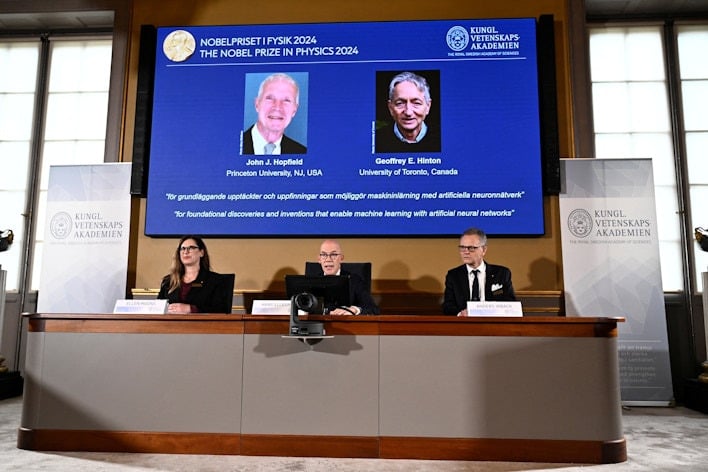
Press conference at the Swedish Academy of Sciences, Stockholm, Sweden, October 8. Photo: TT News Agency
Speaking at a press conference, Ellen Moons said: "Learning is a fascinating ability of the human brain. We can recognize images, words and associate them with memories and past experiences. Billions of neurons connected together give us unique cognitive abilities. Artificial neural networks are inspired by this network of neurons in our brains."
“These artificial neural networks have been used to advance research across a wide range of physics topics, including particle physics, materials science, and astrophysics. They have also become part of our everyday lives, for example in facial recognition and language translation,” she added.
"The laureates' discoveries and inventions form the basis of machine learning, which can help humans make faster and more reliable decisions, for example when diagnosing medical conditions. However, while machine learning has enormous benefits, its rapid development also raises concerns about its future. Overall, humans have a responsibility to use this new technology in a safe and ethical way for the common good of humanity."
At the Nobel Prize in Physics press conference, scientist Geoffrey Hinton spoke about how neural networks and machine learning could impact human civilization. "I think it will have a huge impact, comparable to the industrial revolution. But instead of surpassing humans in physical strength, it will surpass humans in intellectual ability."
“That would be great in most areas, like helping us have better health care. With AI assistants, people would be able to do the same amount of work in much less time.”
“This means productivity will improve significantly. But we also have to worry about some of the potential negative consequences, particularly the threat of things getting out of control.”
The 2023 Nobel Prize in Physics was awarded to French-Swedish physicist Anne L'Huillier, French scientist Pierre Agostini and Hungarian scientist Ferenc Krausz for their work in creating ultrashort light pulses that can quickly capture changes inside atoms, potentially improving the ability to detect disease.
Physics is the second Nobel prize awarded this week, after American scientists Victor Ambros and Gary Ruvkun won the Medicine prize for their discovery of microRNA and its role in gene regulation.
The Nobel Prize in Chemistry will be announced on October 9, the Nobel Prize in Literature on October 10, the Nobel Peace Prize on October 11, and the Nobel Prize in Economics on October 14.
Ngoc Anh (according to Reuters)
Source: https://www.congluan.vn/giai-nobel-physics-2024-vinh-danh-hai-nha-khoa-hoc-nho-phat-minh-ve-cong-nghe-hoc-may-post315826.html


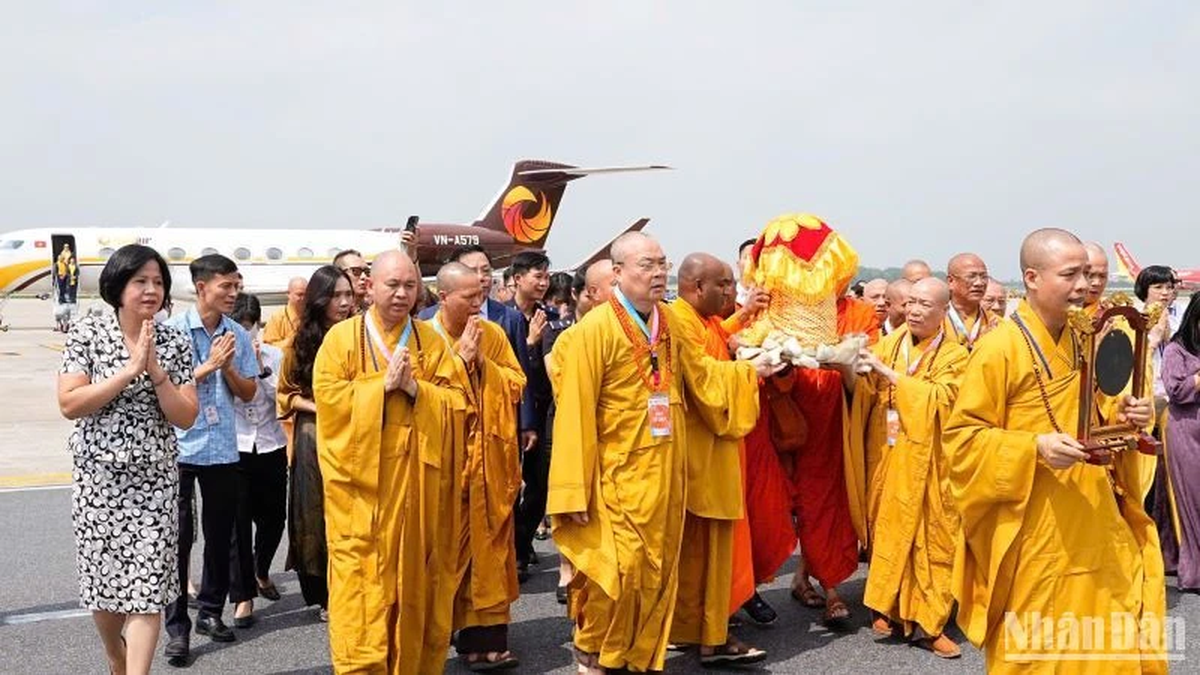
![[Photo] Many people in Hanoi welcome Buddha's relics to Quan Su Pagoda](https://vphoto.vietnam.vn/thumb/1200x675/vietnam/resource/IMAGE/2025/5/13/3e93a7303e1d4d98b6a65e64be57e870)

![[Photo] President Luong Cuong awarded the title "Heroic City" to Hai Phong city](https://vphoto.vietnam.vn/thumb/1200x675/vietnam/resource/IMAGE/2025/5/13/d1921aa358994c0f97435a490b3d5065)
![[Photo] President Luong Cuong attends the inauguration of the international container port in Hai Phong](https://vphoto.vietnam.vn/thumb/1200x675/vietnam/resource/IMAGE/2025/5/13/9544c01a03e241fdadb6f9708e1c0b65)
![[Photo] Prime Minister Pham Minh Chinh receives Ambassador of the French Republic to Vietnam Olivier Brochet](https://vphoto.vietnam.vn/thumb/1200x675/vietnam/resource/IMAGE/2025/5/13/f5441496fa4a456abf47c8c747d2fe92)
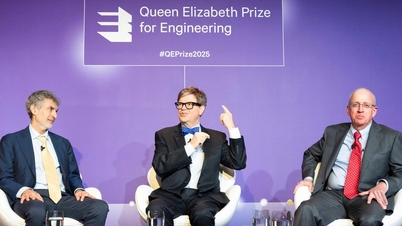

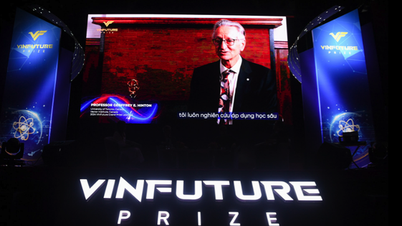

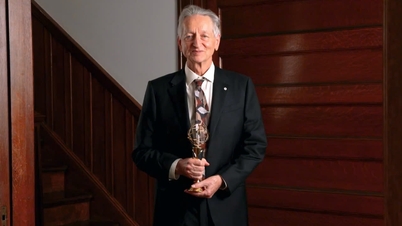

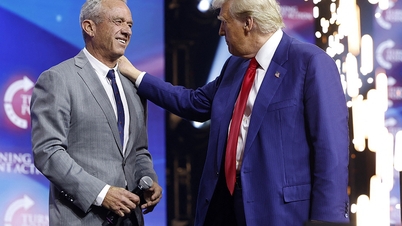


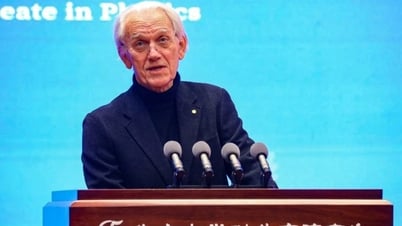
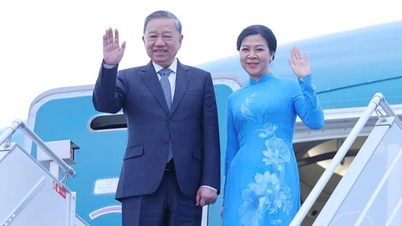

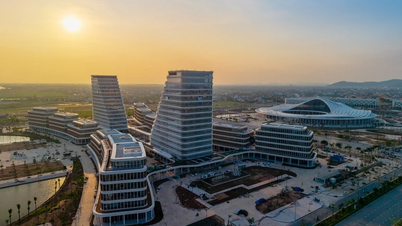


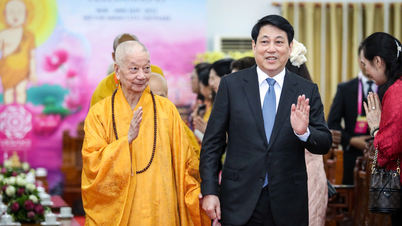




























































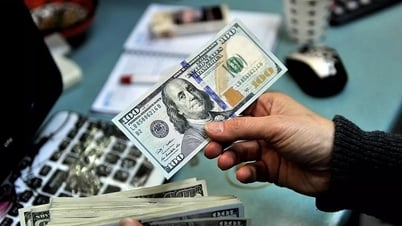


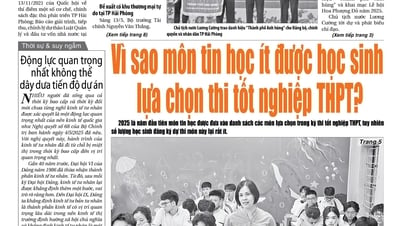










Comment (0)